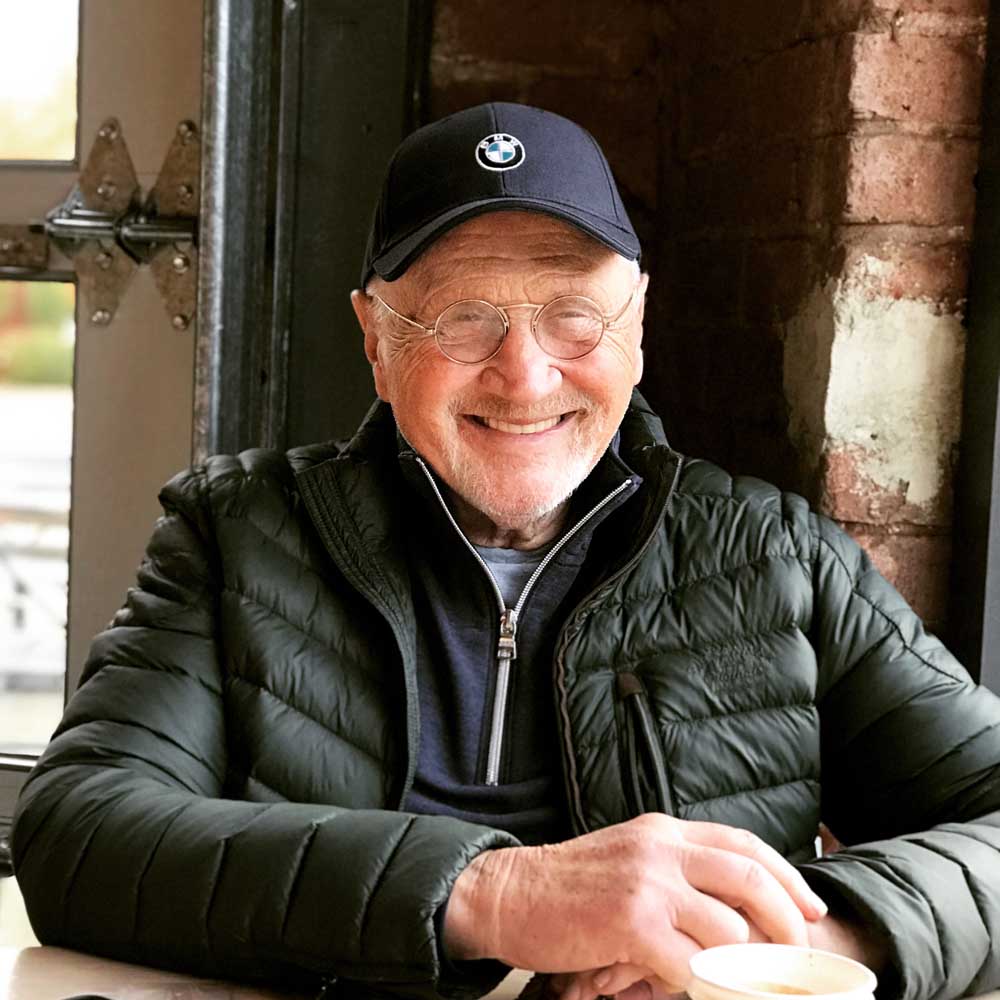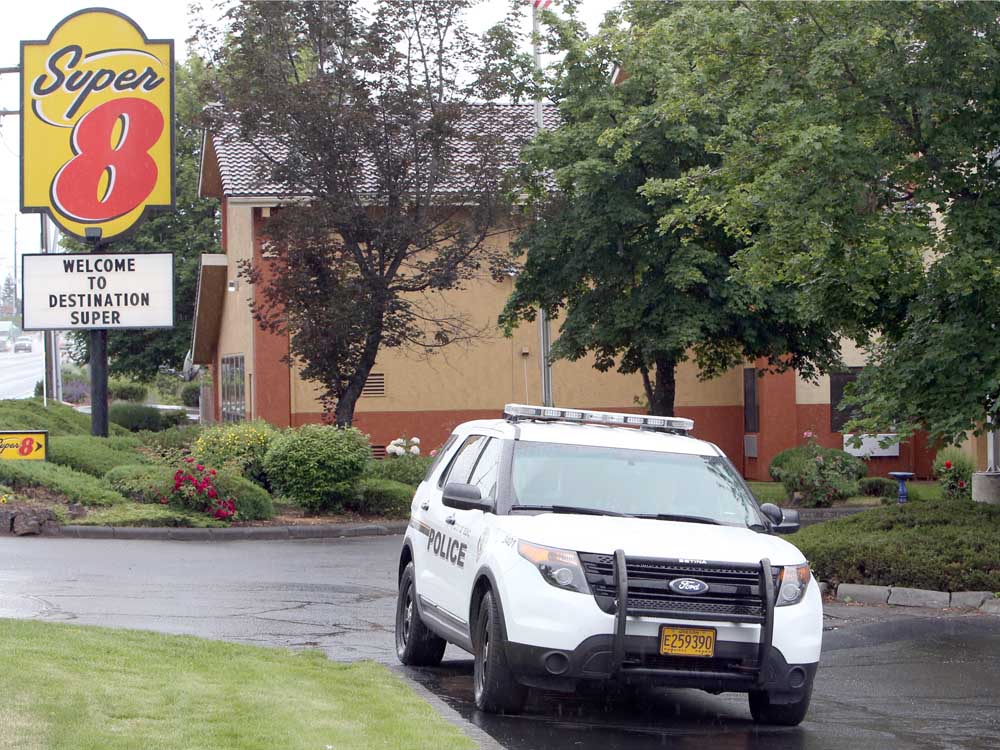Roy Dwyer, bulldog personal injury lawyer, dies at 88
Published 6:00 pm Tuesday, July 19, 2022

- Roy Dwyer
Bend attorney Roy Dwyer, who pioneered personal-injury advertisements in Oregon and fought more than 500 trials over nearly six decades as an attorney, died Monday. He was 88.
Friends, relatives and associates described Dwyer as tough, brilliant and a natural storyteller — exactly the kind of lawyer you want on your side.
“He was the finest example of a trial lawyer you’re ever going to find,” said former law partner Brian Dretke.
On July 9, Dwyer suffered a massive stroke and entered in-home hospice care, in accordance with his wish to not die in a hospital. He had planned to retire in September, which would have been his 60th anniversary as an attorney.
His son, Jim, described his final days as “both brutal and beautiful” in a message to friends.
“He always fought for the underdog,” he said. “He identified with underdogs his entire life, whether taking in stray cats and dogs or giving money to homeless people. That’s just who he was.”
Dwyer was born on Aug. 17, 1933, in a working-class neighborhood in Philadelphia to James Dwyer, a merchant marine, and Mildred (Ostrow) Dwyer. His mother struggled to raise him and his four younger siblings by herself. He sometimes had to steal to eat, his son-in-law, Tim Williams said.
“He came from nothing,” Williams said. “And he was always that kid from Philly. He was always a fighter.”
At 16, Dwyer dropped out of high school and joined in the U.S. Air Force, tweaking his birth certificate to enlist.
He served from 1949 until his discharge in 1953 and enrolled at the University of Alaska-Fairbanks. After two years, he transferred to the University of Oregon, where he earned a bachelor’s degree and went straight to law school.
After earning his juris doctor in 1962, he hung his shingle in Eugene with his own firm.
Before he found his niche in personal injury law, he represented several Eugene car dealerships. The U.S. Supreme Court had recently eased rules allowing lawyers to advertise, a practice that had been previously deemed unconstitutional. It was the car dealerships that convinced Dwyer to use TV ads to reach potential clients.
“He always had a kinship to the blue-collar person,” Williams said. “He thought, we can market our firm to those people.”
He developed a “testimonial” style of ad that would become his signature around the state. The spots cut between Dwyer and clients describing their injuries and the lackluster response of insurance companies.
By 1982, Dwyer was focusing exclusively on personal injury law and, spurred by growing clientele garnered through the ubiquitous “Dwyer Simpson” ads, his firm grew fast, to include offices in Medford, Roseburg, Klamath Falls, and Albany.
Once, attorney David deVilleneuve watched a jet-boat crash on the TV news and heard the announcer saying, “Ow. That guy better get Dwyer Simpson attorneys.”
“That’s how it was,” deVilleneuve said. “When people thought ‘injury,’ they thought ‘Dwyer.’”
Advertising was a taboo topic in law. Fellow attorneys even turned in Dwyer to the Oregon State Bar for an ethics complaint related to the ads, a case he won.
By the early 2000s, Dwyer and his son-in-law, Williams, decided to start a new firm in Bend. Dwyer sold to his former partners, including deVilleneuve, who understood the deal to include use of the “Dwyer” name.
But several months after the sale, Dwyer contacted his former partners to tell them to stop using the name. His one-time colleagues felt “stabbed in the back,” deVilleneuve said.
It’s an example of the “sharpness” of Dwyer’s character described by several people who knew him. He was known to chew out young associates who screwed up. Some took it better than others.
“Some people couldn’t take it and really felt disrespected,” deVilleneuve said. “It’s a bit of that Michael Jordan syndrome: ‘I expect the best and if I’m not getting the best, you’re going to hear about it.’ Because he wanted the best for his clients.”
Despite this, and despite controversy over the firm’s name, deVilleneuve said Dwyer was a great man and a father figure.
“I learned so much from him. I really have to give so much credit to him for my success,” he said.
Dwyer married twice, the first time in 1959 to Judith Jeffries. The pair had three children, a boy and two girls.
He married Janice Gaswint in 1975 in Eugene. The couple had a daughter, Pamela.
Dwyer was an avid traveler, especially in his later years. He visited 45 countries. His adventures included a 1,100-mile bike ride from Hanoi to Saigon, treks in Patagonia and Nepal and at the Great Wall. On his 80th birthday, he completed 120 miles of the Tour du Mont Blanc in the Alps. Closer to home, he’s backpacked the High Sierras, the Grand Canyon, New Mexico, and much of Oregon.
His resume included stints as head of the Oregon Trial Lawyers Association and the Western Trial Lawyers Association and he argued numerous cases before the Oregon Supreme Court.
In recent years, Dwyer had cut back his hours but remained a member of the bar and a consultant at the firm he founded in Bend, Dwyer Williams Cherkoss Attorneys, which today has six offices around the state.
He told the University of Oregon magazine in 2021 that he’d kept at it because he enjoyed helping people.
“Sometimes it’s challenging to work with people, and other times it’s fascinating. But it’s always rewarding,” he said.
“The other thing I like about practicing law is that I’m always learning something new. After being a lawyer for 58 years, I have definite answers for 80% of the questions I’m asked. For 10% of them, I have a fairly good idea. However, when it comes to the remaining 10%, I still have to do my research. I enjoy the challenge.”
Roy Dwyer is survived by his four children, eight grandchildren and one great-grandchild.






